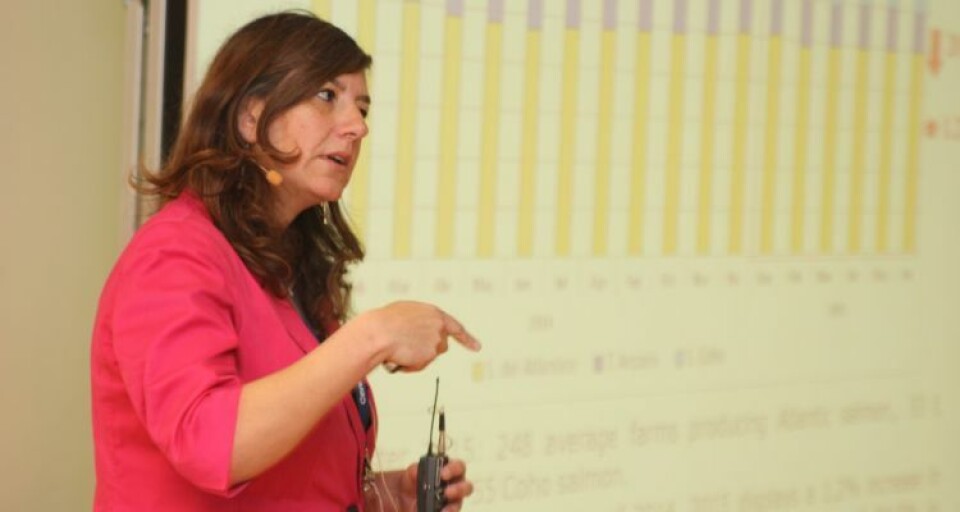
Fresh algal alert
Hundreds of thousands of salmon aboard wellboats traveling through the Gulf of Penas have been killed by blooms of Karenia mikimotoi microalgae.
The producers Nova Austral and Australis have reported three mortality episodes on wellboats transporting fish through the gulf to the National Fisheries and Aquaculture Service (Sernapesca) since February 2.
One of the affected companies detected an increase of the presence of the ichthyotoxic microalgae Karenia mikimotoi. However, for the moment, the presence of this microalga has not been detected near sea sites.
So far, the only loss that has been quantified, according to information from La Prensa Austral, is 140,000 fish, worth US$385,000, from Nova Austral.
Sernapesca says it’s a very different scenario from that faced in 2016, when a harmful algal bloom (HAB) of Pseudochattonella verruculosa caused the loss of about 20% of the country’s projected production volume – not least because they are better prepared for any such event..
"We’ve set up a coordinated inter-institutional response protocol that we did not have last year," said Alicia Gallardo, Sernapesca’s Director of Aquaculture.
The authority claims to have started an investigation in conjunction with the Technical Institute of Salmon Research (Intesal) and the Chilean Navy, to inquire about the extent of the presence of the microalgae, which had not been detected in large quantities since 1998.
She added they had already contacted the Southern Shipowners' Association (Armasur) to recommend measures, such as the suspension of shipping in the coming weeks.
Gallardo added that it is expected that HABs will be detected at this time of year.
"As we knew it was likely, we have strengthened our monitoring systems and information alliances, as well as establishing the Mass Mortality Management Program and mandatory safety and mitigation measures in production centres," she said.
Alfredo Tello, general manager of Intesal, explained that: "This is an isolated event that involves only the Gulf of Penas. The industry continues to operate normally. The situation at this moment is not an alarm, but it is necesary to have precautions, as is usual at this time of year. So far there have been no significant losses, but we must try to assess the situation. Unfortunately, this takes a little longer since the area is in a very remote place".
Tello added that the industry plans to Support the efforts to send a research vessel.
"We believe that sending a boat to the area is the only way to obtain objective information and adequately characterize the situation," he concluded.























































